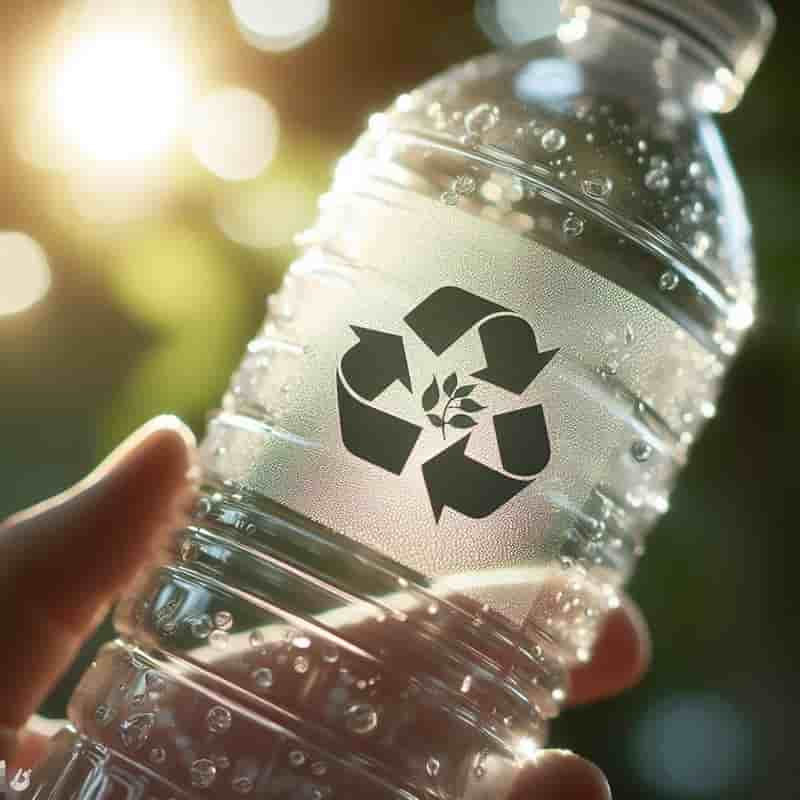Recycling Sustainability -The packaging market is dominated by low-density polyethylene (LDPE), a petroleum-based plastic that is non-biodegradable and can only be mechanically recycled, often with significant loss of quality 17-06-2024
Recycling Sustainability
r-PET Bottles – The Huazhaolin Textile integrated project, an ambitious endeavor by Jiangsu Hualian Group, has officially begun construction at Longgan Lake in Huanggang, Hubei Province

Crude Oil Prices Trend

Crude Oil Prices Trend by Polyestertime
Slowing demand growth and increasing supply are setting the global oil markets on a path to a significant surplus this decade
The IEA’s new medium-term outlook forecasts well-supplied oil markets through 2030, although energy security will remain critical due to transformative sector forces. Oil demand growth is expected to decelerate as energy transitions progress, while global oil production will rise, reducing market pressures and increasing spare capacity to unprecedented levels, excluding the Covid crisis period. Recycling Sustainability
The IEA’s latest report, Oil 2024, explores these dynamics’ impacts on oil supply security, refining, trade, and investment. Despite robust demand from fast-growing Asian economies and sectors like aviation and petrochemicals, the report notes that rising electric car sales, improved fuel efficiency, reduced oil use for electricity in the Middle East, and structural economic changes will offset these gains. Consequently, global oil demand is projected to level off at around 106 million barrels per day by the decade’s end, from an average of just over 102 million barrels per day in 2023.
Simultaneously, global oil production, led by the United States and other Americas producers, is expected to outpace demand growth. Supply capacity could reach nearly 114 million barrels a day by 2030, surpassing demand by 8 million barrels per day. This would lead to unprecedented spare capacity levels, impacting oil markets and producer economies, including OPEC and the US shale industry. Recycling Sustainability
Fatih Birol, IEA Executive Director, highlighted the report’s projections, indicating a major supply surplus and the need for oil companies to adjust their strategies. Although growth is slowing, global oil demand in 2030 is still expected to be 3.2 million barrels per day higher than in 2023, driven by emerging Asian economies and increased jet fuel and petrochemical feedstock use. Meanwhile, demand in advanced economies is predicted to decline, falling below 43 million barrels per day by 2030.
Non-OPEC+ producers, especially the United States, Argentina, Brazil, Canada, and Guyana, are leading the expansion to meet anticipated demand. However, capacity growth may slow and stall if new projects are not approved. Recycling Sustainability
The report also predicts that global refining capacity will expand by 3.3 million barrels per day between 2023 and 2030, sufficient to meet refined product demand due to increased non-refined fuel supply. This could lead to refinery closures and a slowdown in Asian capacity growth post-2027.

Eco-friendly Packaging and the Rise of Biodegradable Plastics
As the world grapples with the devastating consequences of plastic pollution, the search for sustainable alternatives has become a pressing concern. Biodegradable plastics, a type of plastic that break down naturally in the environment, are emerging as a promising solution to the plastic crisis. This article will delve into the world of bioplastics, exploring their benefits, challenges, and potential to revolutionize the way one thinks about plastic waste. Recycling Sustainability
The Plastic Pollution Crisis
It is estimated that approximately two million tons of plastic waste currently contaminates oceans across the globe. According to a recent study, if no measures are taken to address this issue, the amount of plastic pollution is projected to increase by a factor of three by 2040.
What are Biodegradable Plastics?
Biodegradable plastics, also known as bioplastics, are made from renewable resources such as corn starch, sugarcane, or potato starch. These bioplastics are designed to break down naturally in the environment, unlike traditional plastics which takes hundreds of years to decompose. Recycling Sustainability
Biodegradable plastics are composted, reducing the amount of waste sent to landfills and minimizing the risk of plastic pollution.
Benefits of Biodegradable Plastics
Reduced Plastic Waste: Biodegradable plastics are significantly reducing the amount of plastic waste sent to landfills and oceans, helping to mitigate the plastic pollution crisis.
Compostable: Bioplastics are composted, reducing the need for synthetic fertilizers and pesticides in agriculture.
Renewable Resources: Bioplastics are made from renewable resources, reducing dependence on fossil fuels and decreasing greenhouse gas emissions.
Improved Public Perception: Biodegradable plastics help change public perception of plastics, promoting a culture of sustainability and waste reduct. Recycling Sustainability

The packaging market is dominated by low-density polyethylene (LDPE), a petroleum-based plastic that is non-biodegradable and can only be mechanically recycled, often with significant loss of quality
In contrast, polylactide (PLA), a biopolyester, is bio-based, biodegradable, and can be chemically recycled into new products with minimal energy use. However, conventional PLA is too brittle for flexible disposable packaging, such as shopping and garbage bags, which contribute significantly to single-use plastic waste. Furthermore, PLA production has been limited to large-scale operations, excluding smaller companies from manufacturing.
Researchers André Gomoll, Dr. Benjamín Rodríguez, and Dr. Antje Lieske from the Fraunhofer Institute for Applied Polymer Research IAP have developed a flexible, recyclable PLA-based material suitable for film applications. Recycling Sustainability
This innovation allows medium-sized companies to enter the market, providing a sustainable alternative to traditional plastics. The research team’s achievement has been recognized for replicating the properties of polyethylene through the development of block copolymers. They have demonstrated the material’s feasibility in a pilot plant in collaboration with an industrial partner, indicating significant commercial potential.

Clarios highlights recycling efforts in 2023 sustainability report
The low-voltage battery manufacturer says it recycles around 8,000 batteries per hour in its closed-loop system. Recycling Sustainability
Clarios, a low-voltage battery developer based in Glendale, Wisconsin, has made circularity a focus in its 2023 sustainability report.
The company, which develops battery solutions or nearly every type of vehicle, says end-of-life batteries are a critical resource, and claims to operate one of the world’s “most successful examples of a circular economy,” recycling around 8,000 used batteries every hour of every day across its network. The company says it starts with raw materials selected during the battery design stage and ends the production cycle with the reuse of recyclable battery material to create a new battery. Recycling Sustainability
Additionally, when new batteries are delivered to customers, Clarios says it takes back used batteries in return.
“We believe that our efforts to exceed industry-leading environmental and safety standards globally are a key driver of our success,” Clarios CEO Mark Wallace says. “Through our business practices, we aim to demonstrate a dedication to sustainability by seeking continued improvement to lower our greenhouse gas emissions.” Recycling Sustainability
In the report, Clarios highlights its selection as the winner of the 2023 Circular Economy award at the World Sustainability Awards, which were held in Amsterdam in October 2023.

A public meeting took place on Wednesday in Petarch, near Sofia, at a facility dedicated to the reuse and recycling of used mattresses
This initiative, led by Bulgarian company Biocom, is part of the Rematrak demonstration project, funded by the EU’s Environment Operational Program 2014-2020, with support from the European Regional Development Fund and the EU Cohesion Fund.
Gena Sabeva, Biocom’s manager, explained the process of collecting and preparing used mattresses for recycling. The event showcased the materials extracted from old mattresses and the new products that can be created as part of the circular economy. The project emphasizes three key steps: changing consumer behavior, involving municipalities in the separate collection and disposal of mattresses, and engaging mattress retailers and accommodation facilities in the process. Recycling Sustainability
Through research and visits to several European sites, the company identified best practices for mattress recycling. For successful recycling, mattresses must be dry and free from heavy chemical contamination, stored and transported properly to maintain their condition.
In an interview with BTA, Sabeva noted that approximately 150,000 mattresses are discarded annually in Bulgaria, representing 15% of the mattresses produced. She highlighted the importance of replacing mattresses every seven to ten years for hygiene reasons, though some people replace them every five years, while others seek warranties of up to 40 years. Recycling Sustainability

Recycling Sustainability
